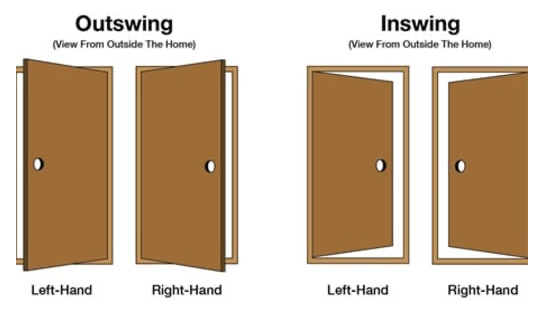10 Reasons to Choose Local over Big Box Stores for Building Supplies
Share this content!
Whether you need lumber for a do-it-yourself project, or you need to replace your entire deck, or you’re a contractor looking for the right supply of lumber for a big build, the shopping options are endless. Here are a few reasons you should shop at your local lumber yard and hardware store rather than a big box store.
When shopping for building supplies for an upcoming project, the choices can seem endless. One of the first decisions many contractors and homeowners must make is whether to buy their supplies at a big box store or shop at local lumber yards and hardware stores.
Big box stores have big selections and lots of products, but locating those products can be overwhelming in a gigantic warehouse. Finding an expert to help you with the details of your project can be even more cumbersome and frustrating. The benefits of shopping local can prove advantageous for many reasons.
1. Choose Local for Better Material Expertise
Local lumber yards and hardware stores specialize in building supplies. There are consistently several experts on hand to answer your questions about lumber, engineered wood products, windows, interior and exterior doors, molding, hardware, and other building supplies. In showrooms like Fountain Building Supply, contractors can talk to contractors who speak the same language and have an extensive technical knowledge base. Wearing a blue or orange vest doesn’t make someone an expert.
2. Choose Local for Better Selection of Building Materials
While big box stores offer a large selection, they may not have the specialization you need for your particular project. A local staff can help you determine what you need—and personalize it for your specific project. To determine which type is best for you, you can work directly with an expert, who may also be your neighbor.
You can’t beat the selection at your local lumber yard. Experts can help you navigate the enormous selection, or you can walk the yard on your own to gather ideas and get what you need. In most cases, local stores provide more custom cuts to suit the needs of your job. In a local lumber yard, you can expect to find a diverse product selection—which is especially important if you’re looking for an unconventional or specialty wood that’s more difficult to source. Since big box stores sell a variety of products, you’ll likely only find the most popular wood varieties there.
3. Local Lumber & Hardware Stores Provide Better Quality & Personalized Customer Service
Lumber yards and local lumber professionals have a greater respect for the wood they carry. After all, it’s their livelihood. Wood that is kept at lumber yards is stored properly and is much better cared for than it is at big box retail stores. Lumber yards understand the environmental conditions that impact wood, and ensure that the wood is properly stored and handled. That leads to straighter boards, more reliable structural integrity, and superior product.
Local suppliers are more invested in their communities and want to help customers find the best solution for their needs. A specialty store values people over profits and will sell you the right lumber, materials, and hardware for your project, rather than upselling to a more costly alternative. Big box stores have corporate goals and targets to hit, which may take priority over what best meets your needs.
4. Get Better Pricing When You Shop Local for Lumber & Hardware
Local lumber yards and hardware stores cut out the middleman. That means they are a direct distributor—bringing you the best pricing possible without any requirements or special membership program. Local shops take pride in choosing the best products and they buy them at competitive prices to pass savings on to you.
It’s common to believe that big box stores are cheaper than local suppliers, but that’s a myth. For example, the price of wood can depend on several factors, including the type of wood, where it’s sourced from, and how often the store purchases that particular type of wood. Since lumber yards specialize in lumber, they purchase wood frequently and in large volumes. This helps local suppliers keep the price competitive when compared to big box stores.

5. Local Stores Offer Quality Referrals for Lumber & Hardware
If you’re buying lumber but planning to outsource the work, it can be notoriously difficult to find the right contractor for your project. Local suppliers are well-connected to the community, which means they’re a great source for referrals. Since your local supplier has worked with many contractors through the years, they can give you a trustworthy referral for the specific project you’re working on. They deal with the ones who do the job right, at a fair price—and they’ll be happy to give you a trustworthy referral.
6. Shop Local for Character and Personal Touch
Big box stores are attractive to shoppers. They often offer large selections of products at low prices. But that selection may not be large enough to offer you what you really want—something unique and full of character. As big companies get bigger, the world becomes more homogenized, so if you want to own something you won’t find in all the homes across America, shopping locally is the way to do it.
7. When You Shop Local, the Money Stays Local
When you choose local businesses over big box stores, you’re keeping your money right where you want it—in your community. In fact, according to the Institute for Self Reliance, $100 spent at a locally-owned business generates $68 of economic activity in the community. Spend $100 at a chain and that number dwindles to $43. It’s kind of like recycling—the more you do it the bigger the benefit for everyone.
8. Local Stores Boost Local Jobs and Wages
Yes, big businesses do create jobs, but those positions likely aren’t benefiting you at a personal level. When you choose locally-owned businesses over big box stores, you’re supporting job creation right where it counts—at home. Supporting the small guys helps these businesses hire qualified salespeople and provide higher wages than their chain competitors.
9. Shopping Local Can Help Protect the Environment
Shop a big box store and you might find a deal, but you likely won’t have any idea where and how that product was manufactured. If you love the environment, it is important to be informed about where and how your products are manufactured or created. Local businesses often sell materials manufactured on site or sourced from the region, greatly reducing their carbon footprint. Small shops can likely tell you how each product is created or sourced, so you can be sure you’re doing your part for the environment—locally and globally.
10. When You Shop Local, the Customer Comes First
Large corporations are more interested in satisfying shareholders and increasing profits than taking personal care of their customers. By contrast, customers are the lifeblood of locally-owned retailers, so you can be sure that your satisfaction is their highest priority. Smaller, local businesses can tailor their products and services to the needs of local customers, not the masses. That means you’re more likely to find exactly what you need.
We deliver to the Central Alabama Region!
Follow Us on Facebook and Instagram Win Prizes!
Share this story!











Share On: